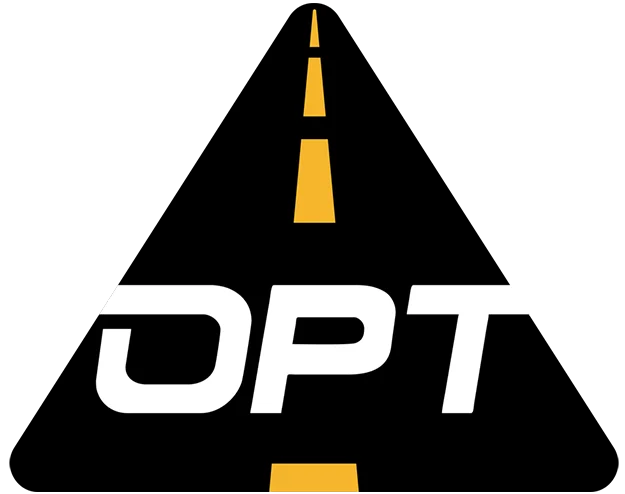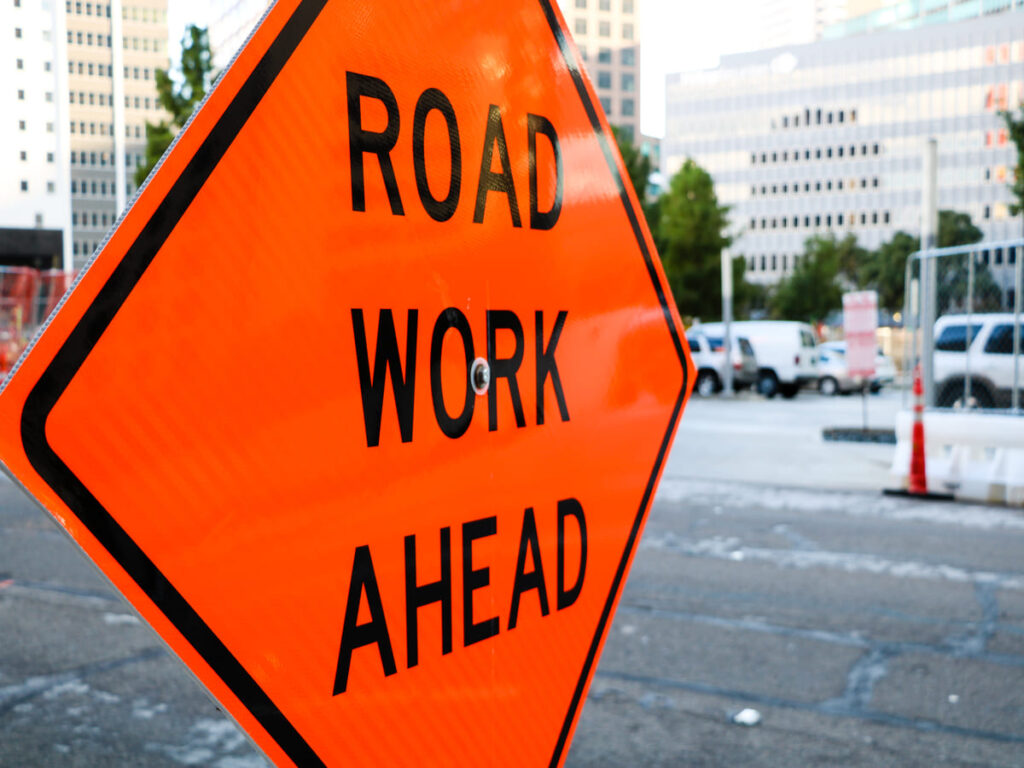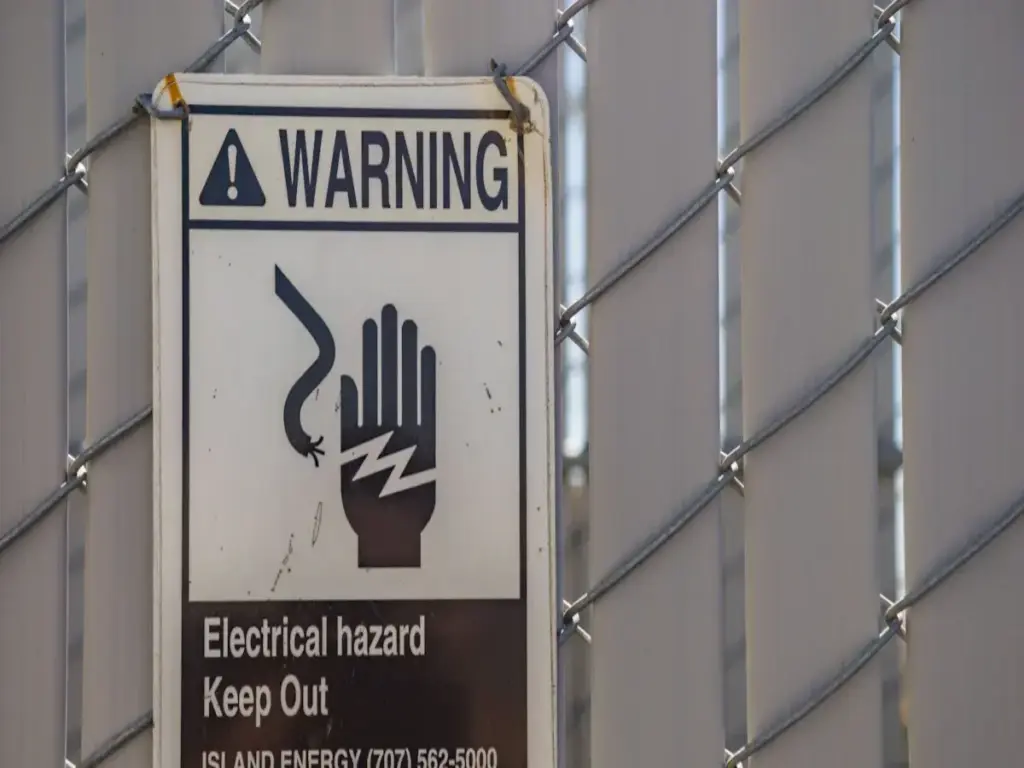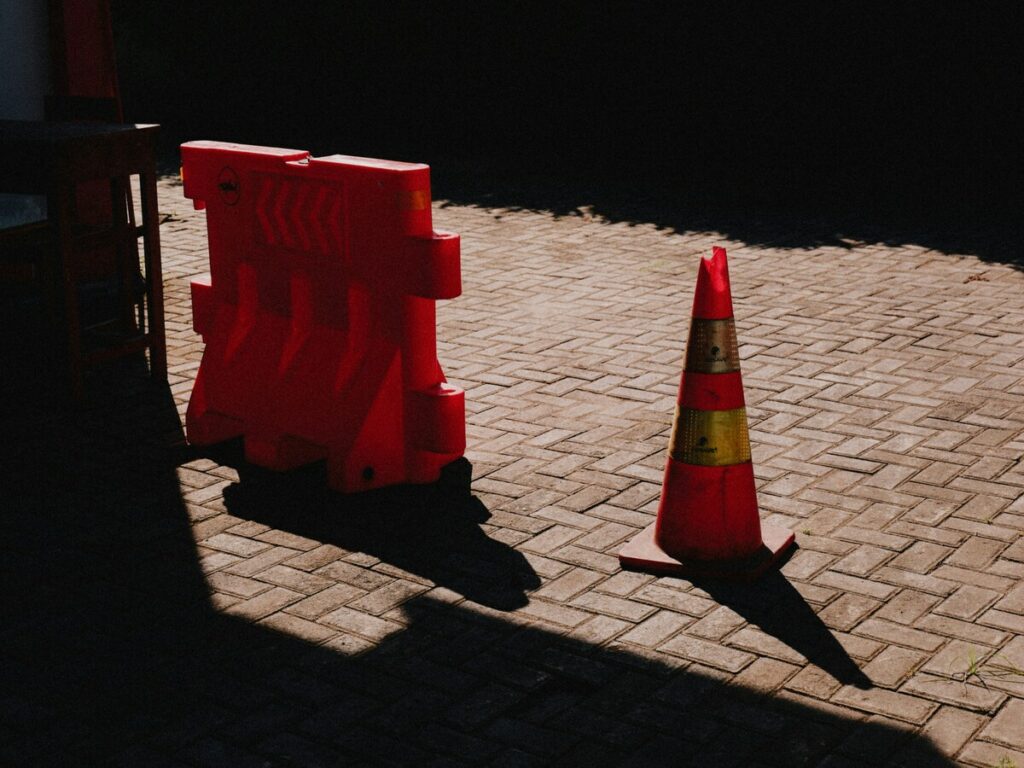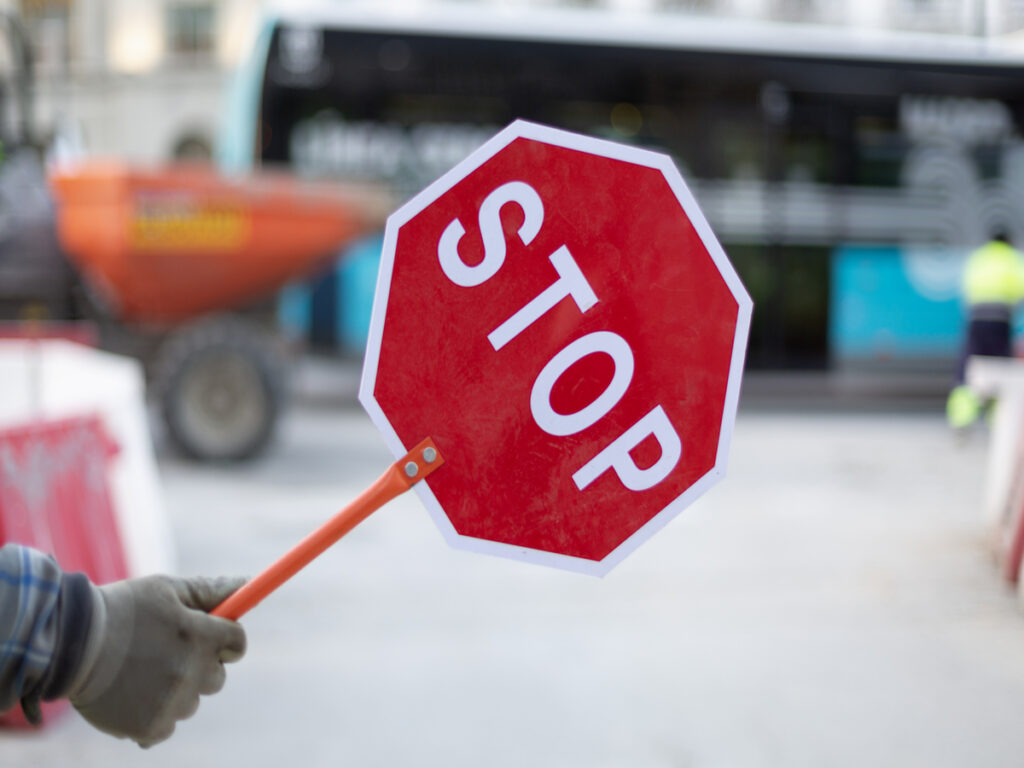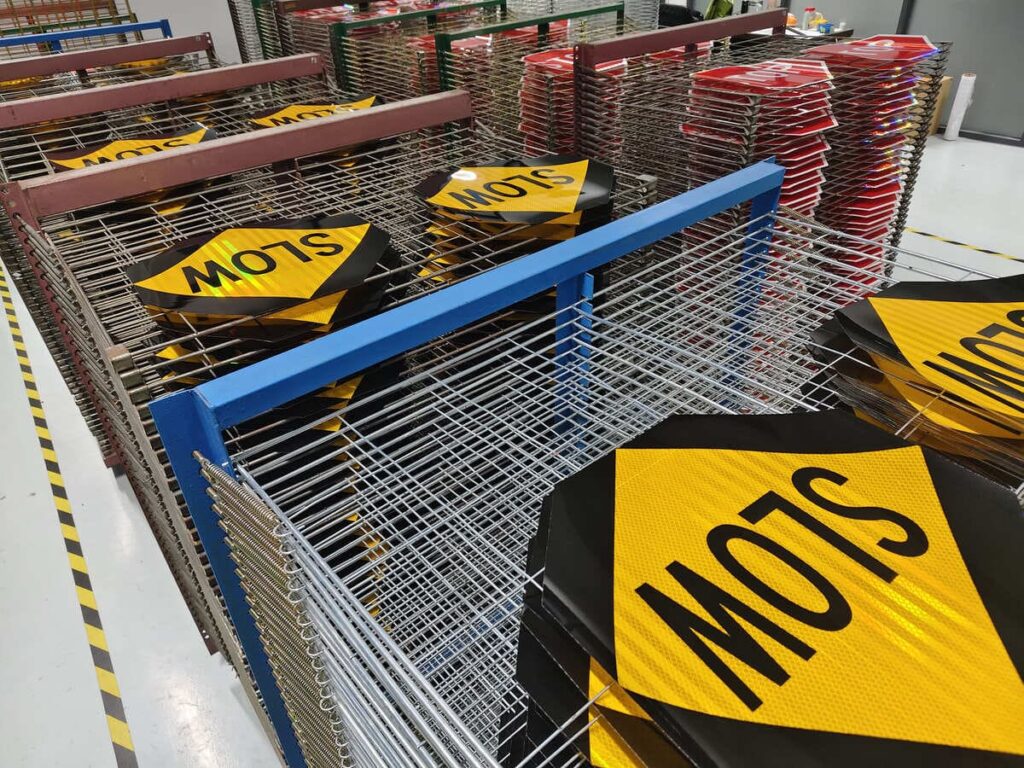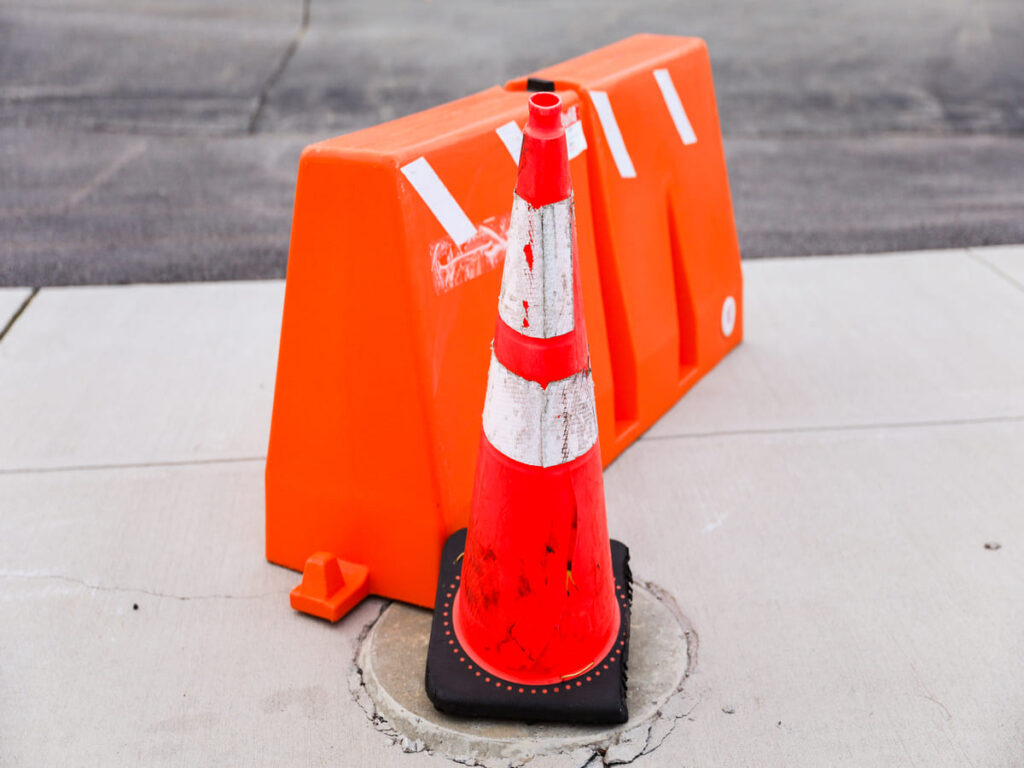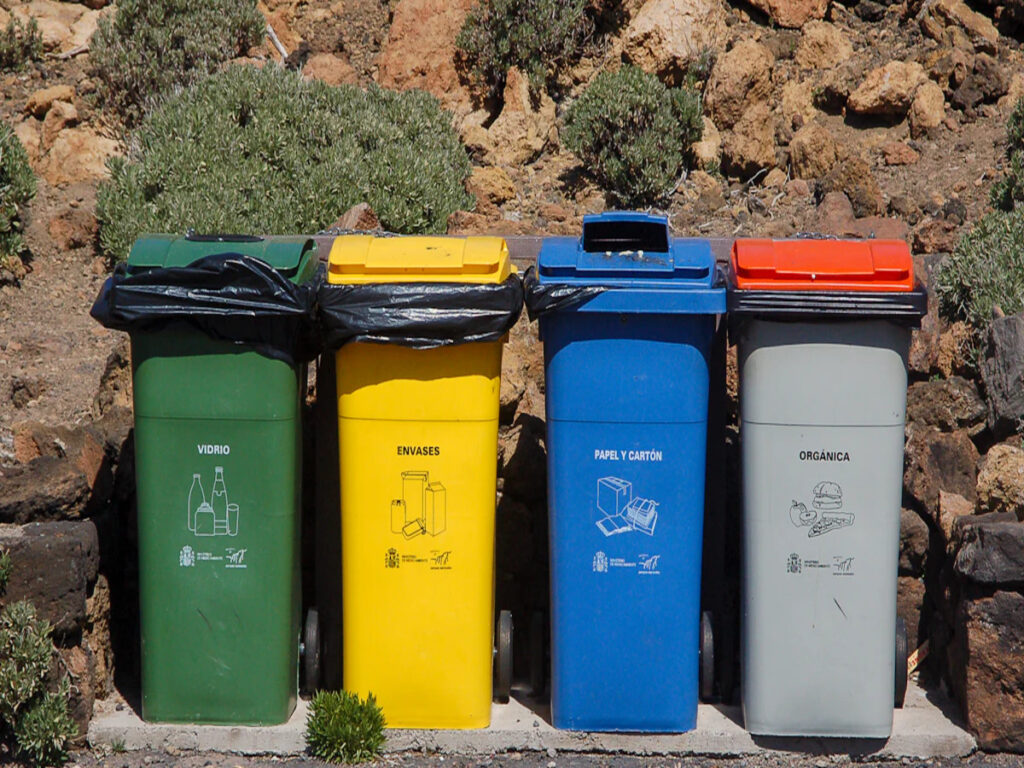
지속 가능성은 유럽에서 시급한 관심사가되었습니다, 특히 교통 관리와 같은 산업에서. 널리 사용되는 PVC 콘 생분해되지 않는 특성으로 인해 환경 문제를 야기합니다.. 재활용은 이러한 문제를 해결하기위한 실용적인 솔루션을 제공합니다. 사용 된 PVC 콘을 재 처리함으로써, 폐기물을 줄이고 귀중한 자원을 보존 할 수 있습니다. 이 접근법은 매립 기여를 최소화 할뿐만 아니라 대륙 전체의 지속 가능성을 촉진하려는 노력도 지원합니다.. 재활용 방법의 발전으로, PVC 콘 산업은 녹색 미래를 향해 중요한 조치를 취하고 있습니다..
PVC 트래픽 콘의 환경적 과제
PVC 콘의 재료 구성
PVC의 비생분해성 특성
PVC, 또는 폴리염화비닐, 환경에서 자연적으로 분해되지 않는 합성 플라스틱입니다.. 일단 폐기, 수백년 동안 지속될 수 있다, 장기적인 오염에 기여. 유기재료와는 다르게, PVC는 분해에 저항합니다., 생태계에 중요한 도전이 되고 있습니다.. 이 내구성, 트래픽 콘 기능에 유익하지만, 콘을 더 이상 사용하지 않을 경우 지속적인 환경 부담을 야기합니다..
PVC 생산이 환경에 미치는 영향
PVC 생산에는 상당한 자원이 필요한 공정이 포함됩니다., 환경에 영향을 미칠 수 있는 것. 제조업체는 일반적으로 염소와 에틸렌을 사용합니다., 그리고 생산 중에, 인간의 건강과 환경 모두에 잠재적인 영향을 미칠 수 있는 특정 부산물이 방출될 수 있습니다..
폐기물 관리 문제
중고 트래픽 콘 처리 문제
PVC 트래픽 콘을 폐기하면 특별한 어려움이 발생합니다.. 생분해되지 않는 특성은 매립지에서 분해될 수 없음을 의미합니다.. 추가적으로, 그만큼 염소 PVC의 첨가제는 표준 폐기물 처리 방법을 방해합니다.. PVC를 소각하면 유해한 독소가 배출됩니다., 부적절한 폐기로 인해 토양과 물이 오염될 수 있습니다.. 이러한 과제는 폐기된 트래픽 콘을 책임감 있게 처리하기 위한 더 나은 폐기물 관리 전략의 필요성을 강조합니다..
유럽의 매립 폐기물에 대한 기여
PVC 트래픽 콘은 유럽 전역의 매립 폐기물에 크게 기여합니다.. 매년 수백만 개의 트래픽 콘이 사용됩니다., 버려진 콘의 축적은 폐기물 문제를 가중시킵니다.. 매립지는 이미 다양한 유형의 비생분해성 물질로 인해 압력을 받고 있습니다., PVC 콘은 이 문제를 악화시킵니다.. 이러한 트래픽 콘을 재활용하면 매립 및 지원에 미치는 영향을 줄이는 데 도움이 될 수 있습니다. 유럽의 지속가능성 목표.
기존 PVC 콘의 탄소 배출량
제조 공정에서의 배출
전통적인 PVC 콘의 제조는 상당한 탄소 배출을 발생시킵니다.. PVC를 생산하는 데 필요한 에너지 집약적 공정은 대기 중으로 많은 양의 CO2를 방출합니다.. 이는 지구 온난화에 기여하고 온실가스 배출을 줄이기 위한 노력을 약화시킵니다.. 이러한 배출 문제를 해결함으로써, PVC 콘 생산이 환경에 미치는 영향을 완화하는 데 도움을 줄 수 있습니다..
운송 및 유통 영향
PVC 트래픽 콘의 운송 및 유통도 탄소 발자국을 남깁니다.. 콘을 공장에서 최종 사용자로 옮기려면 연료가 필요합니다., 이로 인해 추가 배출이 발생합니다.. 재활용 대체품에 비해 기존 PVC 콘의 무게가 더 무거워 운송 중 연료 소비가 증가합니다.. 지속 가능한 관행 선택, 재활용과 같은, 이러한 운송 관련 영향을 줄일 수 있습니다..
PVC 트래픽 콘의 재활용 공정
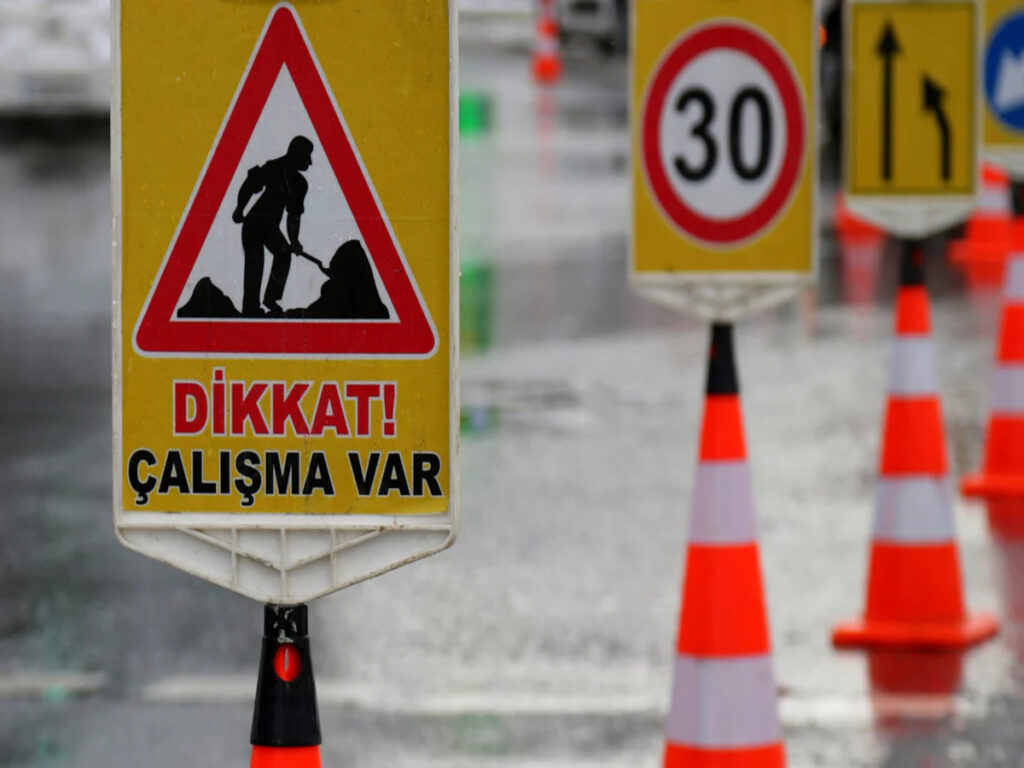
수집 및 분류
사용되었거나 손상된 원뿔 수집
재활용 과정의 첫 번째 단계는 사용되었거나 손상된 교통 콘을 수집하는 것입니다.. 다양한 위치에서 이러한 트래픽 콘을 찾을 수 있습니다., 건설 현장과 같은, 도로 정비 구역, 또는 저장시설. 많은 조직과 지방자치단체에서는 이제 오래된 콘을 지정된 수집 장소로 반환하도록 권장하고 있습니다.. 이렇게 하면 이러한 품목이 매립지에 쌓이지 않게 됩니다., 장기 폐기물에 기여할 수 있는 곳.
다른 재료에서 PVC 콘 분류
수집 후, 정렬이 필수가 되다. 작업자 또는 자동화 시스템은 고무 베이스 또는 반사 스트립과 같은 다른 재료로부터 PVC 콘을 분리합니다.. 이 단계는 재활용 가능한 구성 요소만 프로세스에서 진행되도록 보장합니다.. 적절한 분류는 재활용 효율성을 높이고 오염을 줄입니다., 최종 제품의 품질에 영향을 줄 수 있는.
파쇄 및 가공
PVC를 재사용 가능한 소재로 분해
일단 정렬되면, PVC 콘은 파쇄됩니다.. 기계는 그것들을 더 작은 조각으로 나눕니다., 재료를 다루기 쉽게 만들기. 이 단계는 트래픽 콘을 추가 처리에 적합한 형태로 변환합니다.. 파쇄된 PVC는 녹여 새로운 형태로 변형될 수 있습니다., 처녀 재료의 필요성 감소. 이 방법은 에너지를 절약하고 지속 가능한 관행을 지원합니다..
오염물질 및 불순물 제거
처리 중, 오염물질과 불순물을 제거하는 것이 중요합니다. 페인트 등의 첨가물, 반사 코팅, 또는 먼지가 재활용 재료의 품질을 방해할 수 있습니다.. 고급 여과 시스템과 세척 방법을 통해 재활용 PVC 플라스틱이 업계 표준을 충족하도록 보장합니다.. 깨끗한 소재로 새로운 제품을 만들 때 더 나은 결과를 얻을 수 있습니다.
용도 변경 및 재사용
재활용 PVC로 새로운 트래픽 콘 만들기
재활용 PVC 플라스틱 새로운 트래픽 콘 생산으로 돌아가는 길을 찾았습니다.. 제조업체는 가공된 재료를 사용하여 내구성 있고 기능적인 콘을 성형합니다.. 이러한 로드콘에는 재활용 고무 베이스가 포함되는 경우가 많습니다., which add stability and reduce waste further. By choosing products made from recycled materials, you support a circular economy and help conserve resources.
Alternative uses for recycled PVC materials
Recycled PVC offers versatility beyond traffic cones. Manufacturers repurpose it into items like flooring, 파이프, or even furniture. Recycled rubber from cone bases also finds new life in playground surfaces or sports tracks. These alternative uses demonstrate the potential of recycling to create valuable products while minimizing environmental impact.
Benefits of Recycling PVC Cones
환경 적 이점
Reduction in landfill waste
Recycling PVC cones plays a vital role in reducing landfill waste. When you recycle used cones, you prevent them from occupying valuable space in landfills. PVC, being non-biodegradable, 부적절하게 폐기하면 수세기 동안 지속될 수 있습니다.. 재활용 PVC 콘과 같은 지속 가능한 대안을 선택함으로써, 폐기물 축적으로 인한 환경부하 최소화에 적극적으로 기여합니다.. 이 접근 방식은 순환 경제의 원칙에 부합합니다., 폐기 대신 재료를 재사용하는 곳.
생산 과정에서 발생하는 탄소 배출 감소
재활용 PVC는 새로운 PVC에 비해 생산에 훨씬 적은 에너지를 필요로 합니다.. 이러한 에너지 소비 감소는 제조 과정에서 탄소 배출을 직접적으로 줄여줍니다.. 재활용 소재로 제작된 지속 가능한 트래픽 콘 사용을 지원함으로써, 업계의 전반적인 탄소 배출량을 줄이는 데 도움이 됩니다.. 배출량을 줄이면 환경에 도움이 될 뿐만 아니라 기후 변화에 대처하기 위한 전 세계적인 노력에도 부합됩니다.. 이와 같은 지속 가능한 관행은 보다 친환경적인 미래를 위한 길을 열어줍니다..
경제적 이점
제조업체의 비용 절감
재활용 PVC 콘은 제조업체에게 상당한 비용 절감 효과를 제공합니다.. 재활용 재료로 콘을 생산하면 원자재의 필요성이 줄어듭니다., 종종 더 높은 비용이 발생합니다.. 추가적으로, 재활용 프로세스는 에너지를 덜 소비합니다., 생산비 추가 절감. 이러한 절감 효과는 소비자에게 전달될 수 있습니다., 지속 가능한 트래픽 콘을 경제적으로 실행 가능한 선택으로 만들기. 재활용을 수용함으로써, 제조업체는 지속 가능성을 촉진하면서 수익성을 높일 수 있습니다..
재활용 분야의 새로운 비즈니스 기회 창출
지속 가능한 대안에 대한 수요 증가로 인해 혁신적인 비즈니스 벤처의 문이 열렸습니다.. 재활용 PVC 콘은 수집 전문 기업에 기회를 창출합니다., 처리, 그리고 재료를 재활용하는 것. 기업가는 첨단 재활용 기술을 개발하거나 친환경 제품을 제공함으로써 새로운 시장을 개척할 수 있습니다.. 순환 경제로의 전환은 경제 성장을 촉진할 뿐만 아니라 재활용 부문의 일자리 창출도 촉진합니다.. 이러한 이니셔티브를 지원하면 지속 가능한 경제의 기반이 강화됩니다..
실질적인 이점
재활용 콘의 내구성 향상
재활용 PVC 콘은 기존 옵션에 비해 향상된 내구성을 보이는 경우가 많습니다.. 재활용 과정을 통해 재료가 정제됩니다., 가혹한 기후 조건과 과도한 사용을 견딜 수 있는 콘 생성. 이러한 내구성으로 인해 수명이 길어집니다., 교체 빈도 감소. 재활용 재료로 만든 지속 가능한 트래픽 콘을 선택하여, 폐기물을 줄이면서 장기적인 가치를 제공하는 제품에 투자합니다..
지속 가능한 관행에 대한 대중의 인식 향상
재활용 PVC 콘과 같은 지속 가능한 대안을 채택하면 대중의 인식에 긍정적인 영향을 미칩니다.. 지속가능성을 우선시하는 조직 및 지방자치단체는 환경적 책임에 대한 의지를 보여줍니다.. 이 접근 방식은 환경을 의식하는 개인과 지역 사회의 공감을 불러일으킵니다., 신뢰와 선의를 키우는 것. 지속 가능한 트래픽 콘을 사용하여, 당신은 환경 보존에 기여할 뿐만 아니라 다른 사람들도 유사한 실천을 받아들이도록 영감을 줍니다.. 지속 가능한 이니셔티브에 대한 대중의 지지는 보다 친환경적인 미래를 향한 공동의 노력을 강화합니다..
유럽의 PVC 콘 재활용 실제 사례
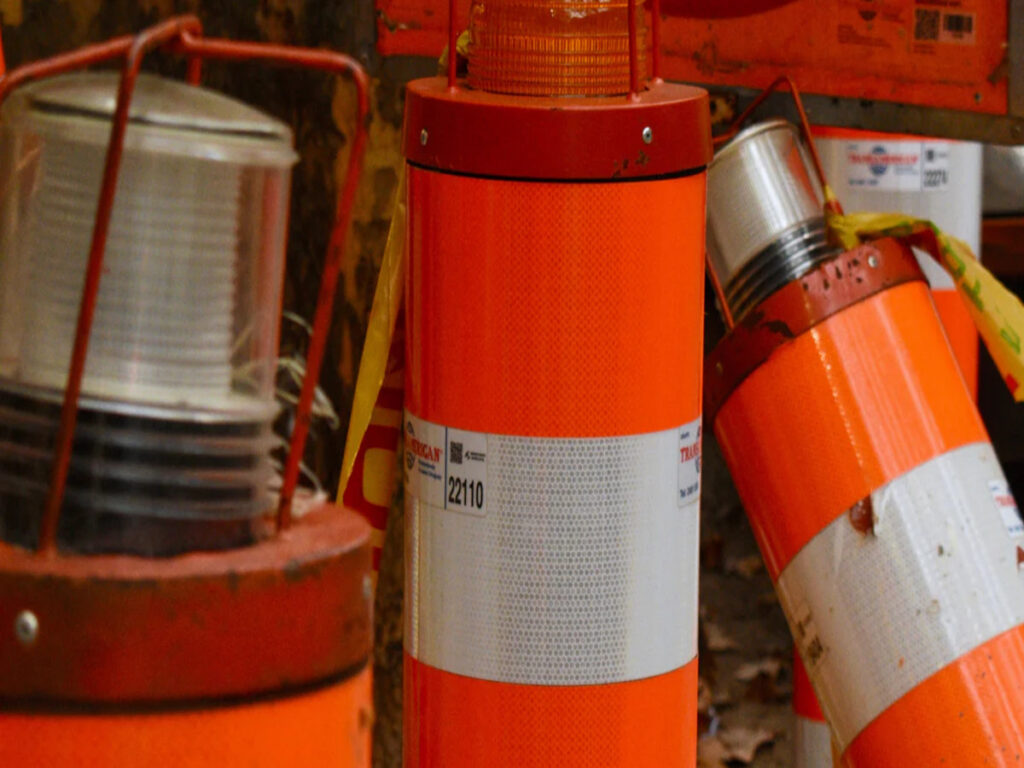
성공적인 재활용 이니셔티브
사례 연구: 독일의 높은 재활용률과 지속 가능한 교통 콘에 중점
독일은 유럽 전역에서 재활용 노력의 선두주자입니다.. 생활폐기물 재활용률이 가까워지면서 70%, 국가는 지속 가능성에 대한 기준을 설정했습니다. 이러한 성공은 트래픽 콘 산업으로 확장됩니다., 재활용 계획이 추진력을 얻은 곳. 독일 제조업체는 중고 PVC 콘을 적극적으로 수집합니다., 매립지로 가지 않도록 보장. 이 콘은 기계적 재활용을 거칩니다., PVC를 재사용 가능한 소재로 분해하는 공정. 이 방법은 비용 효율적이고 에너지 효율적입니다., 폐기물을 줄이기 위한 실용적인 솔루션 제공.
지속 가능한 교통 콘에 대한 독일의 초점은 친환경 관행의 중요성을 강조합니다.. PVC 소재를 재사용하여, 제조업체는 자원을 보존하고 탄소 배출을 줄입니다.. 재활용된 재료는 종종 새로운 교통 콘이나 기타 제품에 사용됩니다., 도로 안전 장비 기지 등. 이 접근 방식은 순환 경제의 원칙에 부합합니다., 재료를 폐기하는 대신 지속적으로 용도를 변경하는 곳. 로드콘 재활용에 대한 독일의 노력은 어떻게 목표한 노력이 의미 있는 환경 변화를 주도할 수 있는지를 보여줍니다..
슬로바키아 제조업체 간 협업과 친환경 생산 공정
~ 안에 슬로바키아, 제조업체는 PVC 콘으로 인한 환경 문제를 해결하기 위해 친환경 혁신을 채택했습니다.. 이들 회사는 재활용 재료를 생산 라인에 통합하여 재활용 노력을 우선시합니다.. 지자체, 환경단체와의 협업을 통해, 슬로바키아 제조업체는 사용한 콘을 수집하고 처리하기 위한 효율적인 시스템을 개발했습니다..
주목할만한 관행 중 하나는 파쇄된 PVC를 새로운 제품으로 재활용하는 것입니다.. 여기에는 내구성이 뛰어난 교통 원뿔과 바닥재 또는 배관과 같은 대체 품목을 만드는 것이 포함됩니다.. 이러한 친환경 생산 공정을 채택함으로써, 슬로바키아는 폐기물을 줄이고 교통 관리 산업이 환경에 미치는 영향을 최소화합니다.. 이러한 재활용 계획은 지속 가능성을 지원할 뿐만 아니라 재활용 부문 내에서 경제적 기회를 창출합니다.. 슬로바키아의 적극적인 접근 방식은 소규모 노력이 어떻게 더 큰 환경 목표에 기여할 수 있는지 보여주는 예입니다..
재활용 기술의 혁신
벨기에 Ineos Inovyn의 PVC 가공 방법 발전
벨기에 PVC 재활용 분야 친환경 혁신의 허브로 부상. 이네오스 이노빈, 선도적인 화학회사, 재활용 프로세스를 향상시키기 위해 첨단 기술을 개발했습니다.. 이러한 방법은 재활용 PVC의 품질을 향상시키는 데 중점을 둡니다., 내구성과 성능에 대한 업계 표준을 충족하는지 확인. 재활용 프로세스를 개선하여, Ineos Inovyn은 오염물질을 줄이고 재활용 소재의 활용도를 극대화합니다..
회사의 혁신은 로드콘 재활용에 중요한 영향을 미칩니다.. 고품질 재활용 PVC는 기존 PVC의 내구성과 일치하거나 그 이상의 새로운 콘으로 성형될 수 있습니다.. 이러한 발전은 지속 가능한 교통 관리 솔루션의 광범위한 채택을 지원합니다.. 기술 진보에 대한 벨기에의 노력은 효과적인 재활용 노력을 추진하는 혁신의 잠재력을 강조합니다..
OPT 표시: 다시 재활용할 수 있는 유럽 솔리드 트래픽 콘
그만큼 OPTsigns의 유럽 솔리드 트래픽 콘 트래픽 콘 산업 내 친환경 혁신의 중요한 진전을 나타냅니다.. 높은 비율의 재활용 소재로 제작, 이 PVC 콘은 지속 가능성의 원칙을 구현합니다.. 손상된 경우 추가 재활용이 가능하도록 설계되었습니다., 폐기물을 최소화하는 순환경제 촉진. 경량 구조로 운송 중 배출 가스도 감소합니다., 도로 안전을 위한 환경 친화적인 선택입니다..
이 제품은 트래픽 콘을 재활용하여 실용화할 수 있는 방법을 보여줍니다., 영향력 있는 솔루션. 선택함으로써 OPT 표시, 매립 기여를 줄이는 데 도움이 될 뿐만 아니라 자원 보존을 촉진하는 제품을 지원합니다.. 이 성공은 유럽 전역에서 산업을 변화시키고 지속 가능성 목표를 발전시킬 수 있는 혁신의 잠재력을 강조합니다..
PVC 콘 생분해되지 않는 물질과 생산 및 폐기 시 유해한 발자국으로 인해 심각한 환경 문제를 야기합니다.. 적절한 재활용은 실용적인 솔루션을 제공합니다, 폐기물을 줄이고 에너지를 보존하면서 이러한 콘을 새로운 제품으로 변환. 친환경 설계와 지속 가능한 교통 관리 관행을 수용함으로써, 이 필수 산업이 환경에 미치는 영향을 최소화하는 데 도움을 줄 수 있습니다. 유럽 전역의 공동 노력, 재활용 기술의 발전과 폐기물 감소 계획을 포함합니다., 보다 친환경적인 미래를 건설하는 데 필수적입니다.. 재활용 PVC 콘을 선택하는 것은 환경 친화적인 선택일 뿐만 아니라 다음 세대를 위해 환경을 보호하겠다는 약속이기도 합니다..
